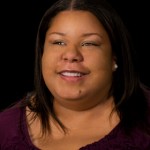The U.S. Travel Association states that travel and tourism is a $759 billion industry responsible for one out of every nine jobs in the country. PRSA offers a Travel and Tourism Section completely dedicated to PR professionals working in travel and hospitality organizations. The industry offers an array of opportunities, from tourism offices to restaurants, cruise lines to airlines and PR agencies specializing in tourism communications. With a projected decrease in the unemployment rate in the tourism industry in 2011, why not consider a PR career in travel and tourism? This week, the PR New Pros blog is excited to look further into the world of travel and tourism through the eyes of two seasoned PR professionals—first a general portrayal of PR in travel and tourism with Diane Centeno, APR, the director of marketing for SeaWorld Parks and Entertainment, and then a deeper look into the role of the Convention and Visitor Bureau with Kelly Ryan, communications & tourism coordinator at the Albuquerque Convention and Visitors Bureau. Start your summer off right with the first part of our “Intro to Travel and Tourism PR” series with Diane Centeno, APR!
Taking a line from Kenny Chesney’s song “Summertime” couldn’t be more appropriate this time of year. “Summertime is finally here, that old ballpark, man, is back in gear.” However, ballparks are not the only thing back in gear. Summertime signals the peak of vacation travel for millions of individuals and families in the United States. From transportation industries like airlines and rail travel, to hotels and resorts, amusement parks and beaches, the travel and tourism industry is back in gear, rebounding as the economic downturn finally starts to show signs of waning and consumer confidence returns.
In addition to rebounding growth, the U.S. Travel Association recently unveiled a plan to create 1.3 million jobs in the industry and add $859 billion to the U.S. economy by 2020 in an effort to solidify the appeal of the United States as a tourist destination for world travelers. The time has never been better to explore a public relations career working in the travel and tourism industry. It is an excellent professional path that offers opportunity, challenges and the excitement of working for and with world-class destinations and brands.
I have been employed in the travel and tourism industry for the past 11 years working for SeaWorld Parks & Entertainment. While I started my career in healthcare marketing and public relations, which was an incredibly satisfying experience, when a job opportunity for SeaWorld opened, I could not resist the idea of working for a top-notch theme park that had an amazing brand to proactively promote and communicate to moms and families. I have been able to build relationships with key broadcast, newsprint and magazine outlets across the United States, dive into social media strategies, work with global communication agencies to promote our brands in key markets like the United Kingdom, Brazil and South America, formed partnerships with area Convention & Visitors Bureaus in Virginia and Florida, traveled for competitive research (always fun to visit another tourist attraction in the name of work) and hosted thousands of media personnel at our parks. While I have ridden roller coasters with reporters to show them our new attractions first hand, toured celebrities and publicized their visits to our parks and traveled with animals for in-studio TV appearances, I have also been able to develop expertise in the areas of public affairs and employee communications in my ever-expanding roles.
As a new public relations practitioner, you may be interested in what types of PR activities you would participate in while working for the travel and tourism industry. You can expect to cover a range of marketing communications, crisis/public affairs communications and employee communications to provide you with a broad range of skills and scope of practice. Promotion of your industry, destination and new products allows a practitioner to develop and diversify skills for integrated marketing communications through traditional media channels as well as consumer-centric social platforms. Industry regulation, safety and legislative initiatives regarding travel allow the new public relations practitioner to become adept at proactive, and sometimes reactive, public affairs communications. And with more than 7.3 million employed in the tourism sector in the United States, depending upon your role in the organization, you may also have employee communication opportunities that will help further diversify your capabilities as a strong, well-rounded practitioner.
The travel and tourism industry has allowed me to expand my professional experiences, and I continue to be passionate about my career. Maintaining membership in PRSA and becoming accredited have also allowed me to build networks that have helped me professionally, as well as create friendships personally. PRSA membership allows new practitioners to network with seasoned professionals and uncover opportunities in all industries, including travel and tourism. There are usually a number of internships, as well as entry-level positions available, especially at this time of year, to explore job opportunities and determine whether your career path will be one following the road of travel.
 Diane Centeno, APR, is the director of marketing overseeing advertising, brand development and media strategies for SeaWorld Parks & Entertainment working closely with the Busch Gardens and Sesame Place brands. She began her career at SeaWorld a decade ago as the communications manager for Busch Gardens and Water Country USA in Williamsburg, Va., and was promoted to senior communications manager for SeaWorld, Discovery Cove and Aquatica in Orlando, Fla.
Diane Centeno, APR, is the director of marketing overseeing advertising, brand development and media strategies for SeaWorld Parks & Entertainment working closely with the Busch Gardens and Sesame Place brands. She began her career at SeaWorld a decade ago as the communications manager for Busch Gardens and Water Country USA in Williamsburg, Va., and was promoted to senior communications manager for SeaWorld, Discovery Cove and Aquatica in Orlando, Fla.


